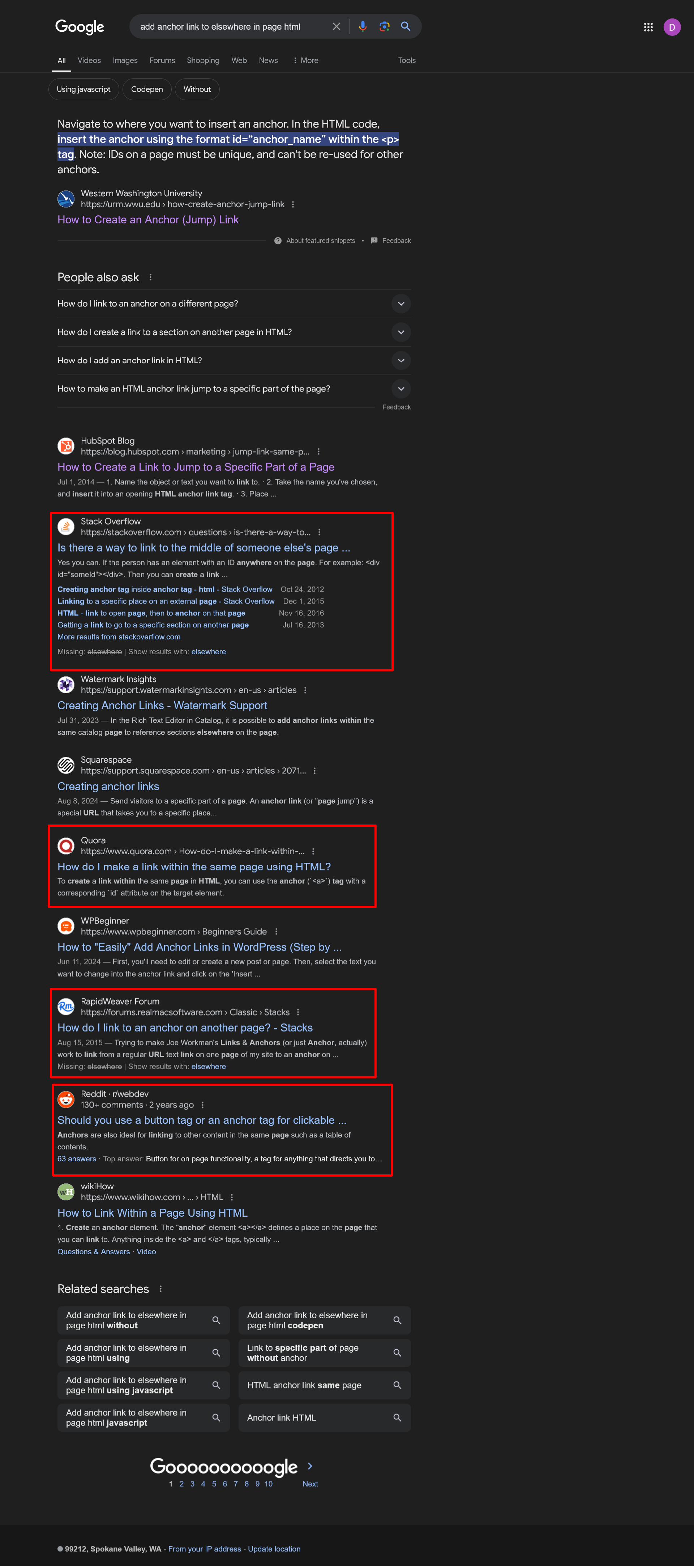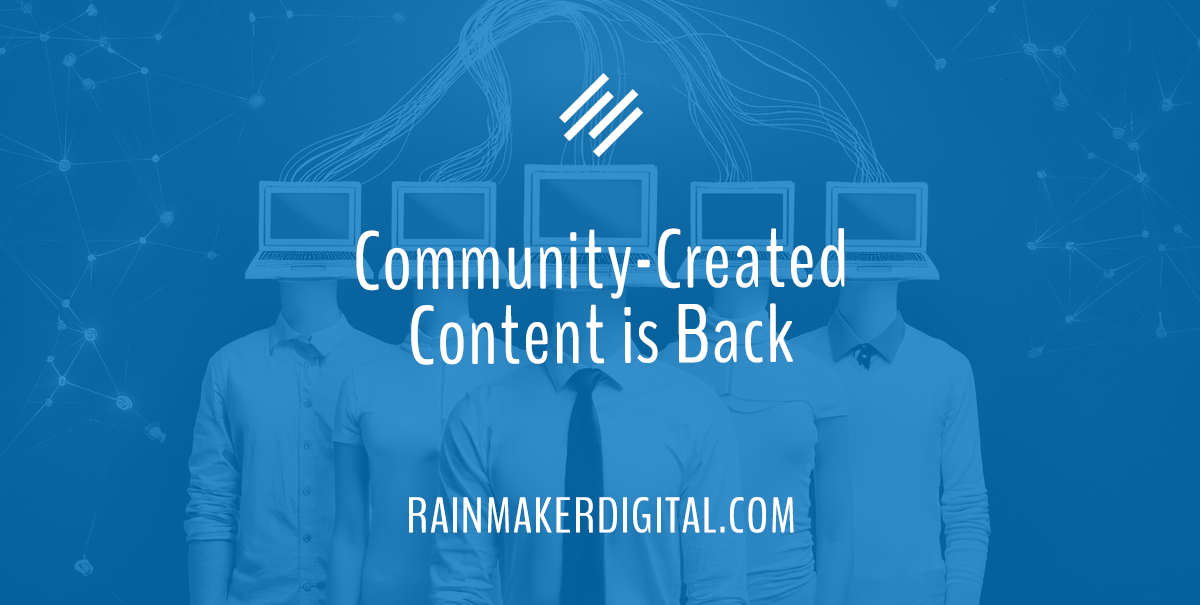In the early days of the Internet, it was a lot harder to find information than it is now.
Before Google, you used less refined tools: word of mouth, web rings (a sort of daisy-chain link between sites on similar subjects), hand-collated lists like Yahoo!. Your primary resource for information was your online community.
Google changed everything. Suddenly you could type in what you were looking for and the machine would find it for you. It paved the way for the modern Internet.
Today, though, we see a backlash against that. Reddit, Quora, forums and other platforms are answering the questions that traditional Google results can’t … and the search giant knows it. These resources are rising to the top of results pages in a way that hasn’t been seen in years.
Community-created content is winning again. Here’s why.
What Do We Mean by “Community-Created Content?”
The Internet has always had community. In the early days, people organized themselves around bulletin board systems (BBS), forums, IRC chats and other discussion groups. These groups were topical in nature — niche hobbies became much less niche as people connected with others that shared their interest.
Those communities were trustworthy sources of information for their members. On an Internet where it was difficult to find direct answers to your questions, they were a resource.
For a long time, though, Google has prioritized brand, blogs and informational pages from individual websites. These sources have dominated the search engine results page for many years. Instead of getting an answer to your question from your community, you got it from the website Google thought best answered the question.
Now we’re seeing communities rise back to prominence. Reddit’s user count is comparatively modest for social media platforms, at around 500 million. Quora has over 400 million unique visitors per month. Both have a much larger audience through Google. You’ll see entries from both platforms, as well as smaller forums, in the top results for many queries. For example, if I search something about how to link internally on a web page, four of the ten results on the page are community posts, including Reddit, Quora and two niche forums.
Other social media sites offer group functionality, but groups are different to something like a subreddit. There’s nothing stopping people from creating tons of different discussion groups about the same subject on Facebook or LinkedIn; I’m in multiple copywriting groups. The big public “topical” groups get overrun with spam, while the private groups are usually run by individual creators or brands. They can’t mimic Reddit, Quora or specialty forums — they’re too fragmented.
Community sites allow you to browse information, ask questions and find answers on a topical basis. This “community-created content” is human-first and largely untainted by brands. This matters a lot.
A Created Consensus
 There’s an old saying that “marketers ruin everything.” This is both mildly offensive to me as a marketer and completely true.
There’s an old saying that “marketers ruin everything.” This is both mildly offensive to me as a marketer and completely true.
Why? Because marketers are like water — we flow to the path of least resistance, the place where attention is most available and underpriced. Eventually, that channel becomes saturated with brand content, and we move on to another area, until eventually everything becomes branded, packaged and productized to be sold to the highest bidder.
That’s what’s happened with Google.
When Google originally started, it was crawling pages that were being created organically by individual users, enthusiasts and brands. There was no “SEO” yet. These pages only existed to provide helpful information to their audience.
Marketers rapidly realized how important it was to get Google’s attention, and search engine optimization has been a key part of every marketing strategy since the early 2000s.
Over time, that’s created issues.
If you want to get general information about something, Google’s great. But when you need specifics, it can be less useful.
If you’re searching for something in a popular category, it’s probably been SEOed to death, which leaves you with a page full of results that largely say the same thing. For example, if I search “how to sell on Instagram,” half of these results are just restating the same points.
Don’t believe me? Look at the search engine results page here. After I get past the four sponsored posts (which all say the same thing), I have a page full of search results which all lead to branded guides that all tell me the same thing.
Which of these is best? Are all of these good? As I browse through them, it becomes clear that there’s a general consensus here that all of these points are good. If every branded page is saying it, it must be true. But there’s no nuance or depth. It’s all homogenized.
There’s a Reddit discussion down at the bottom of the page, though. When I click through, all of a sudden, there are real people giving answers. And there’s a guide someone wrote that already has points that none of the other search results are offering.
This is the most useful information on the whole results page. And if I start browsing through the discussions, I’ll probably find more.
This is why community-created content is seeing a resurgence. Google’s structure creates an artificial “consensus” on what the most important information is. And generally, this information is objectively correct. But it’s not always relevant or useful.
Google knows this, which is why you’re seeing way more Reddit, Quora and forum posts showing up in search results.
Be People-First, Not Google-First
As tech thinker André Staltz notes in his blog post “Google Shattered Human Connection:”
If you were in a new city and you were lost, you would ask a local stranger for directions. If that stranger didn’t know the answer, they would refer to another stranger who probably knew more. Similarly, if I had a friend who was a doctor (or studying to become one), I would ask health-related questions. Their answers often included disclaimers, pros and cons, and even uncertainty.
The recurring pattern in those examples is connection and commitment. The local stranger is connected and committed to their environment, they live in it, aware of its contour, remembering its details. The doctor is connected and committed to their healthcare institution, they’re intimately familiar with books on medicine, statistics, chemistry and biology, after having committed years of their life to this knowledge. All of this takes time and effort, and becomes a part of the person, even part of their identity. A person is truly a member of their community or their surroundings when they embody and represent its culture and legacy.
Community members are connected to each other and committed to the topic which they’re dispensing advice about. Many brands feel no such obligation, and it shines through in their content.
Why is community-created content rising back to prominence? Two reasons.
- It puts the audience first. Let’s be real here: most blog posts are written not because they’re useful, but because they touch on relevant keywords and the brand thinks it can get attention via Google. The information may be sound, but it’s often not motivated by a desire to give the audience something useful. It’s for Google. Community members raise their own status by providing useful information; their goal is fundamentally different.
- It allows exploration of the subjective. As Staltz notes, if he asked a doctor friend for advice, he’d get “disclaimers, pros and cons and even uncertainty.” Those aren’t characteristics of a lot of the branded content created for Google. In a community context, though, you will find differences of opinion over things that aren’t agreed-upon, objective facts, and these differences of opinion give you context that other sources might not provide.
How Can You Harness Community-Created Content?
Communities are relevant again, and you should take advantage of that.
How?
By engaging with them yourself.
Create accounts on relevant discussion groups and interact with the members. Join specific subreddits on Reddit and topics on Quora, or start contributing to forums like StackExchange. The account needs to be you, as an actual person, if this is going to work.
Then offer real, useful knowledge and recommendations to the community over time. Don’t directly plug your product or service first thing. Link it in your bio, make it clear who you are and what brand you’re connected to, but let your actions speak for you. The more effective a community is, the less likely it is to stand for you “astroturfing” to sell. Provide value first. If the community does allow self-promotion (some don’t), you can mention your product or service when it’s relevant, but be judicious.
Marketing in a community requires real altruism and a deft touch. Don’t come in guns blazing and sell, sell, sell or you’ll be out on your ear. This isn’t your brand blog. No one cares who you are. They only care whether your information is useful to them.
As community-created information becomes relevant again, don’t get left behind. Engage in discussions with the people you’re trying to reach, and focus on providing them real value. And if you need a hand, we’re here to help. Just drop us a line, anytime.
Best Regards,
David Brandon
Copywriter
Rainmaker Digital Services
